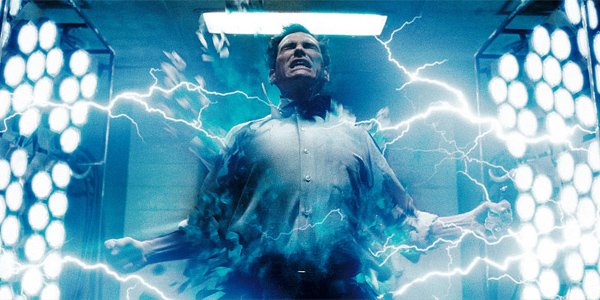
Hey, remember Watchmen? Yeah, that was a movie that existed. For years, Alan Moore and Dave Gibbons’ landmark DC comic was considered unfilmable, flummoxing a number of people who attempted to bring it to the screen. Ultimately, Zack Snyder did, literalizing it in a way that preserved a chunk of the interesting stories within, but ultimately deadening the subtext and sacrificing key points for the sake of spectacle. Heck, people are still apologizing for it. It’s not the worst Watchmen adaptation we could have had. And it wasn’t the strangest, given the intentions of original producer Joel Silver.
Silver purchased the property in the 80’s and got to work with Terry Gilliam on adapting the material, which Gilliam later conceded was best left to a miniseries instead of a film. Ultimately they recruited Sam Hamm, the writer of Batman, to pen a script that deviated far from the source material. And in promoting his latest film Non Stop to Coming Soon, Silver revealed just how unique their Watchmen movie would be.
"It was a MUCH much better movie. Oh God. I mean, Zack came at it the right way but was too much of a slave to the material… What he did was he told the story as-is, but instead of the whole notion of the intergalactic thing which was too hard and too silly, what he did was he maintained that the existence of Doctor Manhattan had changed the whole balance of the world economy, the world political structure. He felt that THAT character really altered the way reality had been. He had the Ozymandias character convince, essentially, the Doctor Manhattan character to go back and stop himself from being created, so there never would be a Doctor Manhattan character. He was the only character with real supernatural powers, he went back and prevented himself from being turned into Doctor Manhattan, and in the vortex that was created after that occurred these characters from ‘Watchmen’ only became characters in a comic book."
Well then. Snyder’s film, and approach, made sense considering that ultimately he was working within the rubric of superhero movies, which limited his approach somehow. Hamm’s script, coming off his bizarre take on Batman (have you SEEN Batman lately? Strange) was still working within the genre of science fiction, so the very notion of time travel that severe makes sense, as does the idea of turning the heroes sad, pathetic Times Square pretenders, as he says in the link. It’s a tragic ending, one that Snyder didn’t opt for, given that your lasting memory from his picture is those characters in their suits, kicking ass.
One could see how that ending is a cop out of sorts, basically erasing the film from history. But it seems that Hamm, in line with his approach to Batman as a sloppy catalyst of danger and destruction, viewed superheroes with a jaundiced eye, and that the ending would have validated superheroes as juvenile fantasies borne from the imaginations of only a few talented people (in this case, Jon Osterman, the first meta-human to take up crime-fighting). Snyder, who went on to give the same reverent treatment to Man of Steel, probably made the friendlier version in keeping with the spirit of the material’s origins. Gilliam, Silver and Hamm’s would have torn it apart. Which version would you prefer?
Your Daily Blend of Entertainment News
